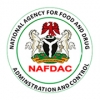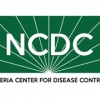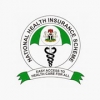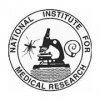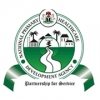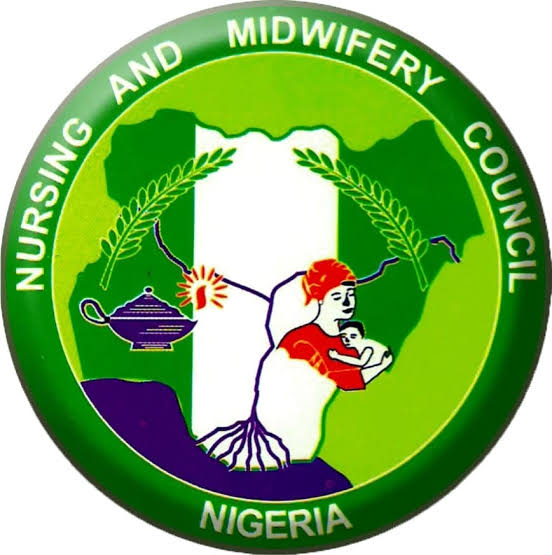THE PRESS BRIEFING OF THE HONORABLE MINISTER OF HEALTH DR OSAGIE E. EHANIRE, MD, FWACS ON THE CELEBRATION OF THE 2020 WORLD BREASTFEEDING WEEK AT THE FMOH, HMH 1ST FLOOR CONFERENCE ROOM ON MONDAY, 3RD AUGUST, 2020
PROTOCOL
It gives me great pleasure to welcome you all to this global event of this year’s World Breastfeeding Week celebration with the theme “SUPPORT BREASTFEEDING FOR A HEALTHIER PLANET”
Over the years, Nigeria has joined more than 170 countries to commemorate this weeklong event for awareness creation and to generate support to improve breastfeeding practices for good health and wellbeing outcomes on infants, young children and mothers.
The 2020 celebration focuses on the impact of infant feeding on the environment and to support breastfeeding for the healthier planet. Breastfeeding is environmentally friendly; it does not waste scarce resources or create pollution. Breast milk is a naturally-renewable resource that requires no packaging, shipping, or disposal and its production does not harm the environment.
The benefits of breastfeeding to both mother and baby cannot be over emphasized. Breastfed babies have stronger immunity, reduces the risk of infections and many childhood illnesses, and may also have longer-term health benefits including reduced risk of overweight and obesity in childhood and adolescence. Studies have shown that obesity rates are 15-30% lower in breastfed babies compared to formula-fed babies. Again, about 80,000 child deaths are reported to be prevented annually when optimal breastfeeding is practiced.
Furthermore, breastfeeding provides huge health benefits to mothers. It helps to prevent post-partum bleeding, lowers the risk of breast and ovarian cancers, and many more. About 20,000 maternal deaths can be prevented annually when optimal breastfeeding is practiced.
According to the National Demographic and Health Survey 2018, the early initiation rate of breastfeeding is 42% which clearly shows that not up to half of our children are breastfed within one hour of birth. Also, the exclusive breastfeeding rate in Nigeria is 29% indicating that only a mere percentage of infants aged 0-6 months are exclusively breastfed leaving a whopping 71% of infants not enjoying the benefits of breast milk in their formative years. Only 9% of organizations have a workplace breastfeeding policy.
Looking at the data, it has been a great challenge in Nigeria as mothers and caregivers are neither fully aware of the importance of breastfeeding nor received adequate support from the environment to optimally breastfeed their babies. This is why the celebration of week is to inform and educate mothers as well as galvanize more support from the Government/Legislation, Family and social network, health care system, workplace and employment, and Response to Crisis and Emergency on the benefits of breastfeeding.
The Federal Ministry of Health recommends early initiation of breastfeeding within one hour of birth, exclusive breastfeeding for the first six months of life, continued breastfeeding up to two years of age or beyond, with the introduction of appropriate complementary foods from six months.
The Federal Ministry of Health, in her mandate to protect, promote and support breastfeeding, launched the National Zero Water Campaign during the 2019 World Breastfeeding Week celebration. The Campaign was launched to proffer solution to the findings that giving water in addition to breast milk in the first six months of life is the barrier to exclusive breastfeeding practice in the country. The aim of the 2-year campaign is to educate Nigerians on the need to give babies only breast milk, without water and other liquids in the first six months of life. The Campaign is ongoing in several states across the Federation.
Furthermore, the preventive component of the 5-year Counterpart Contribution for the procurement of Ready-to-Use Therapeutic food {2017-2020} for treatment of children with severe acute malnutrition in the six geopolitical zones has included the procurement of Infant and Young Child Feeding (IYCF) Counseling Cards and Micronutrient Powder to improve breastfeeding and complementary feeding services as well as micronutrient deficiency control services. These essential nutrition-specific interventions of the health sector are boosters to optimal breastfeeding practices and contribute to reduction of malnutrition which is at peak in the first two years of the child.
The National Guidelines on the Baby Friendly Initiative (BFI) is currently being reviewed. The guidance from this BFI is holistic encompassing baby friendly services in the hospital, community and workplace; which is to revitalize the baby friendly services in line with 2018 WHO new ten (10) steps to successful breastfeeding as described in supporting breastfeeding in facilities providing maternity and new born services. The goal is to incorporate all programming on breastfeeding as an integrated service delivery in routine services that pertains to breastfeeding at health facility, community and workplace.
The National Regulation on the marketing of Breast milk Substitutes (BMS) which is a veritable tool that Nigeria signed on is to respond to the demands of the International Code of marketing of BMS and subsequent World Health Assembly Resolutions. This is to address the problem of undermining breastfeeding to the infants and young children. The Regulation with its Act has provisions that prohibit the unethical marketing practices of infant food manufacturers. The BMS include infant formula, follow-up formula, growing up milk, feeding bottles, teats, dummies and pacifiers and stipulating that these should not be advertised or promoted to the public, mother through any mass media communication channels, not even at the health facility should the sellers contact the mothers, pregnant women or their families. This will discourage the mother/child’s right to make informed decision to optimally breastfeed the child and thereby increasing the use of breast milk substitutes. The hazardous effect is still enormous. Rather Companies/ Donors that market/donate BMS should only do so through officially sanctioned health programmes by my Regulatory Agency called National Agency for Food and Drug Administration and Control (NAFDAC).
Looking ahead, we hope to achieve the global target of at least 50% exclusive breastfeeding rate by 2025 as recommended in the National Policy on Food and Nutrition.
Distinguished ladies and gentlemen, we must all work hard to ensure that Nigeria meets this target and improve exclusive breastfeeding practices for the first six months. The 2020 WBW celebration is challenged by the Covid- pandemic. I want all to know that the coronavirus like other microorganisms do not affect giving breast milk to our IYC because all the disease-fighting factors are in breast milk and so protect the child from the hazards of pathogens. It is therefore safe to give breast milk to our children even in Covid-19 and other micro-organisms.
On this note, I applaud all our partners and stakeholders whose persistent support to the course of nutrition has led to a remarkable impact on our country. My earnest desire is that this year’s celebration will have a tremendous effect on the breastfeeding indices and also contribute to reducing malnutrition and other related illnesses in Nigeria.
In conclusion, as we mark this year’s World Breastfeeding Week, let us all make a commitment to doing more to help the Nigerian child to experience the lifesaving benefits of optimal breastfeeding. An investment in breastfeeding is a cost-effective investment in our nation’s health, economy and future workforce.
THANK YOU ALL AND GOD BLESS NIGERIA.
